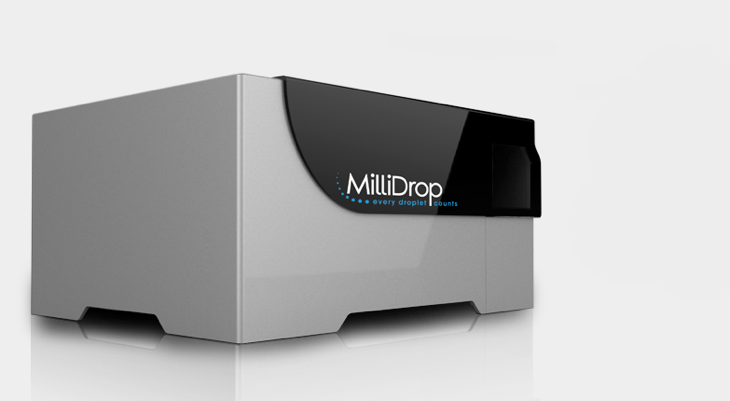MilliDrop, which designs and develops cell culture machines based on millifluidics technology for bacteriological research and diagnosis purposes, is announcing a €1 million fund-raising from Seventure Partners’s Quadrivium 1 seed fund.
The company will use the money to start producing trial runs of its first machine, the MilliDrop Analyzer. This machine uses millifluidics technology to culture and analyse micro-organisms. Particularly promising, millifluidics technology – based on the miniaturisation of cell culture – allows the high-throughput incubation, analysis and manipulation of samples ranging from around 100 nanolitres down to a few picolitres in volume, with no deterioration in performance.

Laurent Boitard, founder and chairman of MilliDrop, said “the sample’s culture medium is no longer a Petri dish or an incubator, but a drop is a major technological breakthrough. The system monitors several thousand reactions in parallel in millimetric drop, with no evaporation or contamination between cultures. Reducing the sample size increases productivity a thousand-fold. For example, bacteria are omnipresent in our environment because of their great ability to adapt. If we want to destroy or use them, we need to understand their adaptability.”
Philippe Tramoy, partner at the Quadrivium 1 seed fund, added “MilliDrop’s technology will give public- and private-sector research laboratories access to high-throughput screening machines, unique in the market. It addresses the increasing need for analysing micro-organisms, from a single cell to a colony, with compact, easy-to-use and highly reliable instruments.”
MilliDrop works on a new generation of in-vitro diagnostics instruments called MilliDrop DIV, which will enable users to identify infectious agents and the antibiotic doses required to eradicate them, in order to reduce therapeutic failures associated with choosing the wrong antibiotic or an excessive dose.

